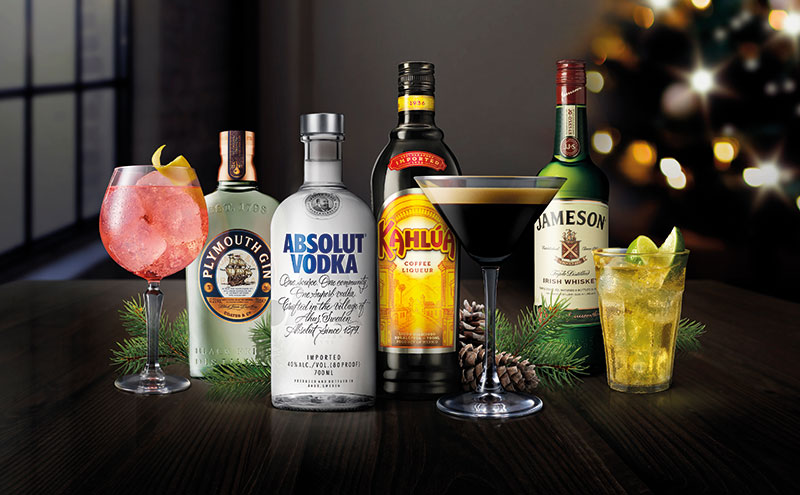As Pernod Ricard UK launches its Christmas campaign focused on helping retailers increase sales of popular cocktail and mixer ingredients, Scottish Grocer spoke to channel director for grocery Chris Shead about the opportunity the category represents.

ONCE again, it’s time to start planning for Christmas, and this year, to drive sales of premium spirits, Pernod Ricard UK is launching ‘Mix with The Good Stuff’, a campaign capitalising on demand for cocktails at home.
By promoting three simple cocktail serves in the eight weeks before the big day, the firm says stores can take an additional £2,582 each, equating to an extra 116 bottles per store.
One of the people behind the campaign is Chris Shead, channel director for grocery, who said a change of approach could open up premium spirit sales for convenience retailers at Christmas and beyond.
“I think in convenience, standards have gone up across the board in recent years,” he said.
“Looking at the overall market, stores that can react quickly to local demand – which independents can – have a big advantage. The multiples tend to have a one-size-fits-all approach and they need to break away from that. It’s a bit rigid.
“That said, premium spirits account for 50% of all spirit sales in the on-trade, it’s 30% in grocery, while in convenience it’s more like 18%. There’s a lot of room for improvement there.

“Now, there are some constraints on the convenience channel. There’s only so much range a retailer can fit into their space. But I think, historically, independent retailers have been obsessed with price-competitiveness, worrying that they’re cheap enough. That obsession has probably come at the cost of thinking about range in more of a tiered, structured way.”
More often than not, he said, convenience stores offer better prices than the multiples on spirits, but too narrow a range.
“What they tend to do is, if they’ve got a range of whiskies, they’ll have Famous Grouse, Bell’s, Grant’s, Whyte & Mackay and Teacher’s – five brands all doing the same job, more or less.
“They may not have Chivas, Johnnie Walker, Monkey Shoulder, Haig Clubman, and therefore they’re missing out on the brands that attract a younger demographic.
“Make sure you’ve got sufficient representation across pricing tiers, proportionate and sensible based on your demographics.
Even in the toughest demographic, people still trade up for the right event, such as Christmas.
“It’s about proportionality. I’m not saying in a hard-pressed area you need to have a range that’s full of really top stuff, just make sure you offer something so that people can trade up. Because with certain things, at certain times of year, people do trade up. Even in the toughest demographic, people still trade up for the right event, such as Christmas.”
It’s important, he said, to have complementary mixers, as well.
“There are good quality mixers like Fever Tree and Fentimans that allow consumers to create the on-trade experience at home and retailers need to be mindful of that. Particularly at seasonal times of year, when cocktail making will be big.”
Beyond Christmas, the premium spirits market could become especially important for Scottish retailers, Shead reckons, if Minimum Unit Pricing is introduced.
“I’m not an advocate of MUP, but if a cheap vodka suddenly costs £14 a bottle and prices remain unaltered on premium, then premium will become more attractive,” he said.
“But who knows how it will play out. Scottish retailers already have to work harder, with a lot more restrictions, but in England and Wales, a lot of retailers’ strategies have begun to follow the Scottish model. What Scotland has pioneered the rest of the UK market is following.”






















